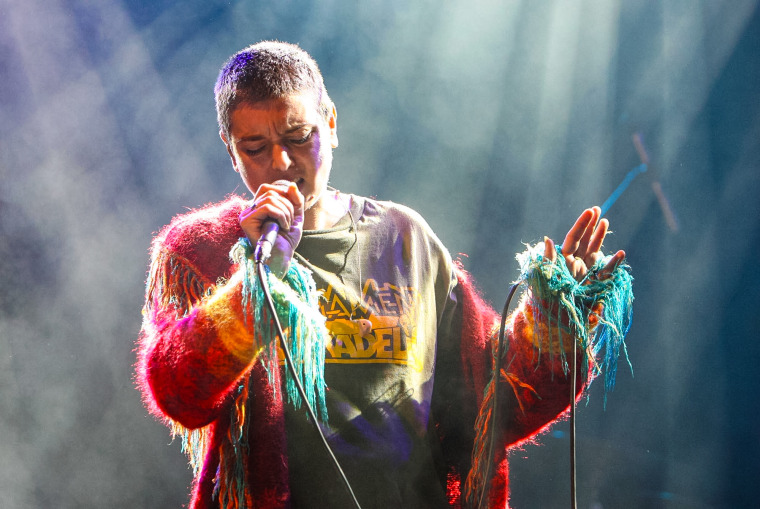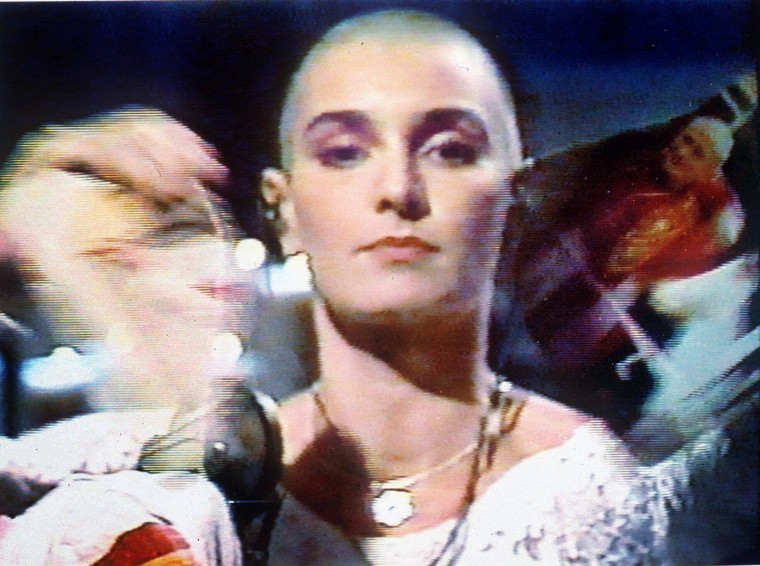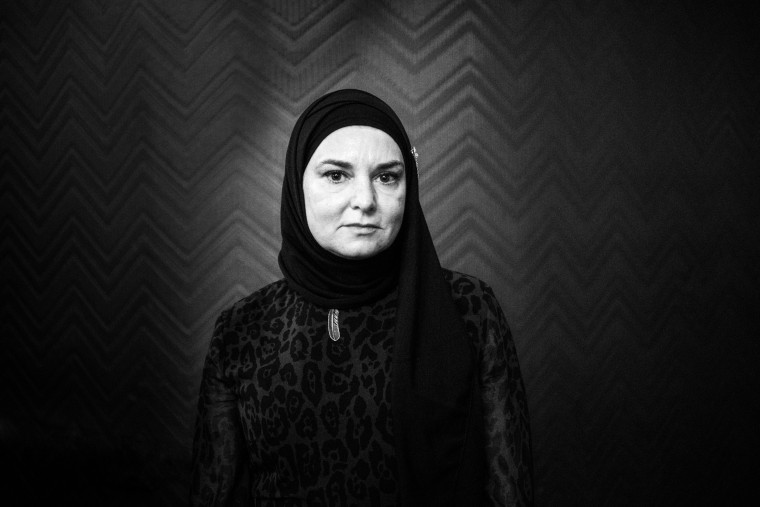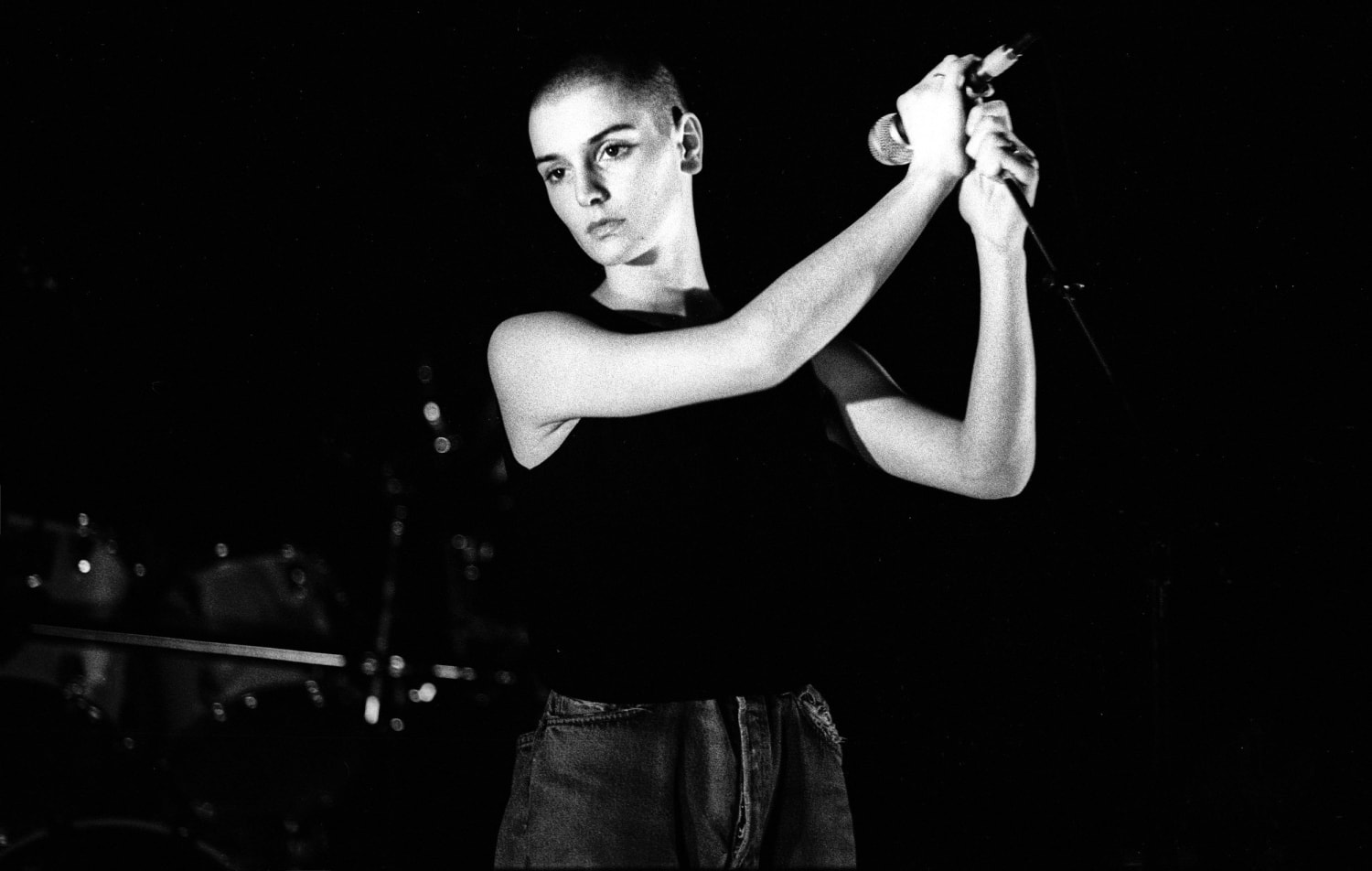Irish singer Sinead O’Connor has died at the age of 56.
“It is with great sadness that we announce the passing of our beloved Sinéad. Her family and friends are devastated and have requested privacy at this very difficult time,” the singer’s family said in a statement to The Irish Times and the BBC.
The controversial artist rose to fame with her 1990 rendition of the Prince song “Nothing Compares 2 U,” which peaked at No. 1 on the Billboard Hot 100 that same year.
Her death comes one year after her 17-year-old son, Shane O’Connor, died of an apparent suicide. She announced his passing in January 2022.

In her lengthy career she released 10 studio albums, kicking it off with her 1987 alternative rock debut, “The Lion and the Cobra”
O’Connor, who was born in Dublin, Ireland, made as many headlines for her activism and controversies as she did her music.
In 1991 she said she’d boycott the Grammy Awards, claiming the Recording Academy awarded artists based on commercial success.
In October 1992, she infamously tore up a photo of Pope John Paul II and said “Fight the real enemy” while performing as a musical guest on “Saturday Night Live.” She explained the move was in protest of child sexual abuse in the Catholic Church.

The provocative move was met with an onslaught of high profile criticism, with actor Joe Pesci threatening to smack her in his “Saturday Night Live” monologue and Madonna mocking her on the same stage by ripping up a photo of Long Island sex offender Joey Buttafuoco, saying “Fight the real enemy.” Frank Sinatra went as far as to call her “one stupid broad.” The move was also criticized by the Anti-Defamation League.
“I’m not sorry I did it. It was brilliant,” O’Connor said to the New York Times in 2021. “But it was very traumatizing.”
Despite declaring herself not a mainstream pop star, she was nominated for several Grammy Awards and won best alternative music performance for “I Do Not Want What I Haven’t Got” in 1991.
Throughout her career she’s candidly and publicly spoken about her spiritual life, political views and her struggles with mental health, which she detailed in her 2021 memoir “Rememberings.”

In 2018, O’Connor converted to Islam and changed her name to “Shuhada.”
“This is to announce that I am proud to have become a Muslim,” she wrote on Twitter on October 2018. “This is the natural conclusion of any intelligent theologian’s journey. All scripture study leads to Islam. Which makes all other scriptures redundant.”
The Prime Minister of Ireland, Leo Varadkar, tweeted Wednesday: “Really sorry to hear of the passing of Sinéad O’Connor. Her music was loved around the world and her talent was unmatched and beyond compare. Condolences to her family, her friends and all who loved her music.”
This is a developing story. Please check back for updates.
Source: | This article originally belongs to Nbcnews.com









